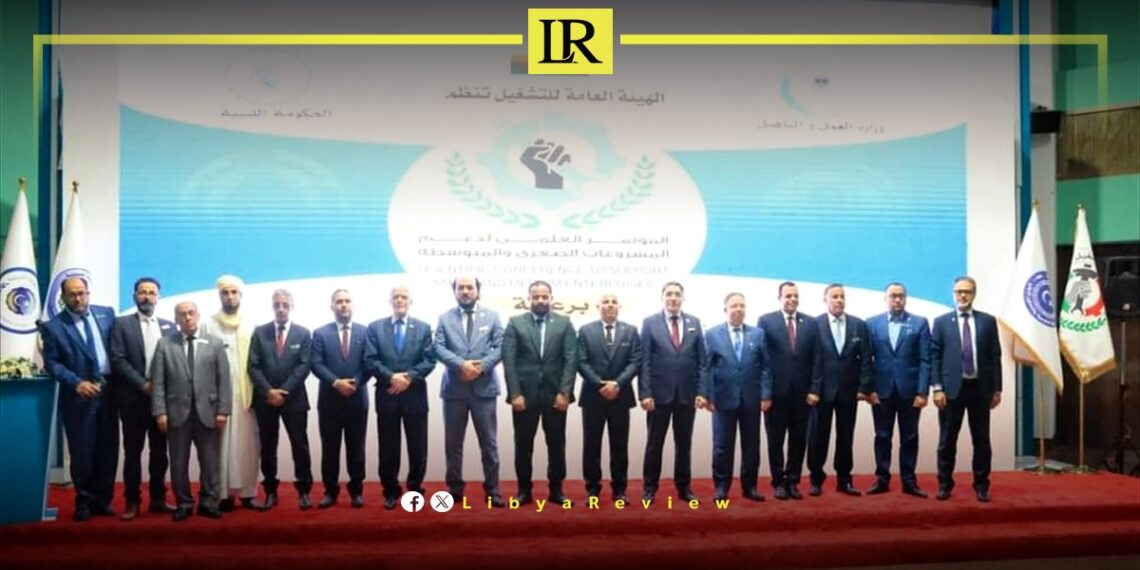The International Scientific Conference on the Role of Small and Medium-Sized Enterprises (SMEs) in Reducing Unemployment in Libya officially began on Thursday. The event is organized by the General Authority for Employment under the Libyan Ministry of Labor and Rehabilitation.
Taking place at the Tibesti Hotel in Benghazi, the conference features participants from Egypt, Tunisia, Algeria, Morocco, and various Libyan regions and cities.
The opening ceremony was attended by a distinguished group of Libyan parliamentarians, government ministers, and academics, all focusing on the role of small and medium enterprises in economic development.
Conference Goals and Discussions
The conference aims to highlight the General Authority for Employment’s role in supporting youth and reducing unemployment through SME development. Key objectives include evaluating the contribution of SMEs to lowering unemployment rates, identifying challenges faced by these businesses, and promoting entrepreneurial culture among Libyan youth.
Topics discussed will cover a range of issues, including youth and economic changes, the culture of entrepreneurship, challenges in establishing SMEs, their role in combating unemployment, and the importance of training and financing mechanisms for entrepreneurship.
Libya has been in chaos since a NATO-backed uprising toppled longtime leader Muammar Gaddafi in 2011. The county has for years been split between rival administrations.
Libya’s economy, heavily reliant on oil, has suffered due to the ongoing conflict. The instability has led to fluctuations in oil production and prices, impacting the global oil market and Libya’s economy.
The conflict has led to a significant humanitarian crisis in Libya, with thousands of people killed, and many more displaced. Migrants and refugees using Libya as a transit point to Europe have also faced dire conditions.
The planned elections for December 2021 were delayed due to disagreements over election laws and the eligibility of certain candidates. This delay has raised concerns about the feasibility of a peaceful political transition.
Despite the ceasefire, security remains a significant concern with sporadic fighting and the presence of mercenaries and foreign fighters. The unification of the military and the removal of foreign forces are crucial challenges.


